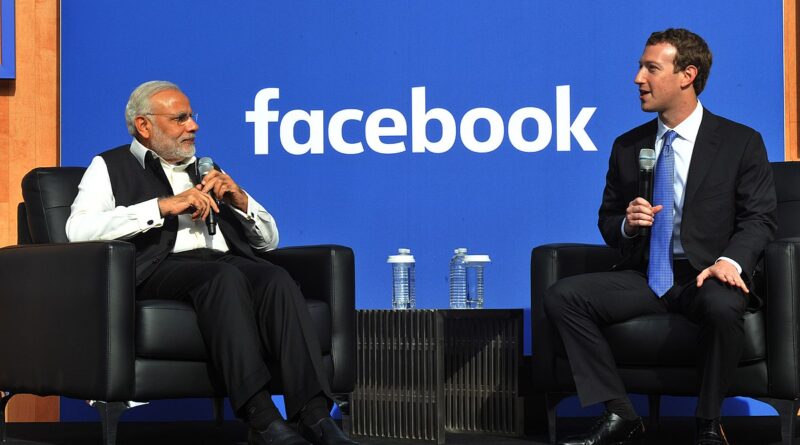India is fighting back against Facebook
Despite numerous attempts from the Silicon Valley giant to gain a technological stronghold over the country’s untapped market through deceptive schemes, the people of India are showing resistance towards their anti-privacy initiatives
Big Tech companies no longer function as mere corporations but like the colonial forces of old, seizing untapped territory overseas without the consent of the local population, only today they conquer online space and mine data more than physical land and resources.
Facebook is among the most renowned for such practices, targeting the developing world’s massive potential markets for its expansion of power, profit and influence, while dressing their intentions as altruistic and about equality.
India has fallen victim to the Silicon Valley giant over the last decade through various initiatives that have sought to lock the nation under their control.
The appeal of India to Facebook is most notably its large population –1.366 billion people – of whom 50 percent (685.6 million) are connected to the web, meaning a massive existing market as well as an equally massive potential market to exploit.
India is now the world’s second-largest smartphone market after China, while the number of internet users in the nation is expected to top 850 million by 2022.
Internet.org/Free Basics
Facebook’s first major initiative in India was the launch of Internet.org in early 2015, which had debuted in four African countries in 2013.
Internet.org was marketed as an effort to help the 3.5 billion people in the world without internet to gain access to the web and, in February 2015, it was made available in six Indian states before being rolled out nationwide in September later that year, rebranded as ‘Free Basics’.
The social network spent around €35 million to promote Free Basics in India, yet despite its philanthropic façade, it made Facebook the homepage of the Internet and limited users to a heavily censored version of the web with access to just limited sites which directed everything back to its own services.
”Facebook was acting as a gatekeeper of the Internet by pre-selecting services available on Internet.org, without transparency and with a Western bias detrimental to local services and start-ups,” writes Free Basics expert Toussaint Nothias.
India stood up to this technological coup and, by February 2016, Free Basics was banned by regulators following nationwide protests in which citizens argued that the app expanded Facebook’s monopoly power and subjected users to censorship and surveillance.
“It is concerning that Facebook — which says it supports net neutrality — would attack those who have sought to enshrine this fundamental principle in law,” a collection of 31 privacy groups wrote in an open letter on Facebook.
Facebook returns with ‘Express Wi-Fi’
But Facebook struggles to take “no” for an answer, and it didn’t take long for it to roll out a new initiative which just redirected Indian users back to Free Basics.
This was achieved through an initiative called ‘Express Wi-Fi’ in partnership with Airtell, rolling out 20,000 hotspots in rural parts of India which handed retailers the option to offer its users open access to Free Basics. By November 2016, Facebook had 40 million people back on internet.org.
Facebook’s acquisition of Meesho and digital currency aims for India
Even with such a poor track record, Facebook continues to expand in India. In 2019, it acquired Indian eCommerce platform Meesho, an online marketplace that connects sellers with customers on platforms such as Facebook-owned WhatsApp.
This acquisition is a step aimed towards expanding its business in the country, particularly as it aims to launch its GlobalCoin digital currency which initially plans to target the Indian market.
Facebook buys majority stake in Jio for $5.7 Billion
Linked to its acquisition of Meesho is Facebook’s $5.7 billion majority stake purchase of Indian internet provider Jio, as it will look to drive more business through WhatsApp.
“Today we are announcing a $5.7 billion, or INR 43,574 crore, investment in Jio Platforms Limited, part of Reliance Industries Limited, making Facebook its largest minority shareholder. The investment underscores our commitment to India, and our excitement for the dramatic transformation that Jio has spurred in the country,” a Facebook statement read in April 2020.
WhatsApp dispute
India is by far WhatsApp’s biggest market with 340 million users, far ahead of second placed Brazil, which has 99 million. So common is the messaging service that it has replaced text messages and phone calls for most across the country.
Yet recent incidents have caused a shift in India, not to do with Free Basics or any other questionable investment in the country, but due to privacy concerns.
In 2019, hackers were able to install commercial Israeli spyware onto both iPhones and Android phones, and Indian users were among those who fell victim.
Then, as laid out in a recent op-ed by Shivam Vij, a high profile case involving the suicide of well-known Bollywood actor led to a media which hunt which involved private WhatsApp message being read out on national news, which not only sparked outrage on an ethical basis but at the realization that a so-called end-to-end encrypted platform keeps backups on devices or cloud services which those themselves are not protected and, therefore, privacy is not guaranteed.
But the big game changer has only just started, and could have a cataclysmic effect. After WhatsApp unveiled a new policy at the start of 2021 which would share more data with parent company Facebook, privacy-focused messaging app Signal is now gaining popularity.
Signal not only beat WhatsApp in downloads between 5-12 January, but also Facebook and Instagram in weekly India downloads. While Signal was downloaded 3.3 million times in the January 5-11 period, WhatsApp saw just 1.7 million downloads, Facebook 2.1 million downloads, and Instagram two million.
Facebook has made significant inroads across India, yet the resistance of the people continues to put a spanner in their works.
Due to the drop in downloads and the boom of Signal, Facebook has opted to delay WhatsApp’s terms of service update until May instead of February. India’s response, as the messaging service’s biggest market, will have surely played a part and sends a positive reminder that it is through the choices of the consumer through which Big Tech giants will be compelled to curb their malpractices, or else lose business, which is their greatest priority.
Please consider supporting our cause by following us on Facebook and/or Twitter, or by sharing this article on your social networks.




